Sugar cravings can feel like a powerful force, taking over your thoughts and demanding your attention. You know the feeling a sudden urge hits, and it’s as if nothing but something sweet will do.
You might be in the middle of a busy day or unwinding at home, and all you can think about is reaching for that sugary snack. It’s not just about hunger; it’s a craving that’s hard to ignore, and it can be frustrating to feel so at the mercy of something as simple as sugar.
But you’re not alone, and there are ways to take back control. From small changes in your daily routine to understanding what triggers those cravings, this article will guide you through 20 effective and manageable strategies to help you curb those sugar cravings for good.
Now, let’s dive into the actionable ways to conquer those cravings and find balance.
Look for Hidden Sugars

Sugar sneaks into our diets in places we don’t expect, from salad dressings and condiments to breads and even savory snacks. Studies show that regularly consuming foods high in hidden sugars leads to more intense cravings and increased calorie intake.
Checking labels for added sugars (like corn syrup, fructose, and maltose) can help you cut down without feeling like you’re sacrificing your favorite flavors. Reducing hidden sugars gradually can make it easier for your body to adjust.
- Read labels for hidden sugars (look for words like fructose, maltose).
- Start reducing hidden sugars gradually to ease your body into the change.
- Avoiding hidden sugars can reduce overall cravings.
Eat Balanced Meals with Protein and Healthy Fats

Balanced meals that include protein and healthy fats help prevent the blood sugar rollercoaster that often triggers sugar cravings. Protein sources like eggs, fish, and lean meat release energy slowly, while healthy fats from nuts, avocados, and olive oil promote satiety.
Research has shown that meals high in protein and healthy fats reduce hunger hormones and keep blood sugar steady, lowering the chances of experiencing sugar cravings later on.
- Aim for protein sources like eggs, fish, or lean meat in meals.
- Add healthy fats like avocados, nuts, or olive oil for fullness.
- Balanced meals can help reduce your body’s craving triggers.
Prioritize Sleep
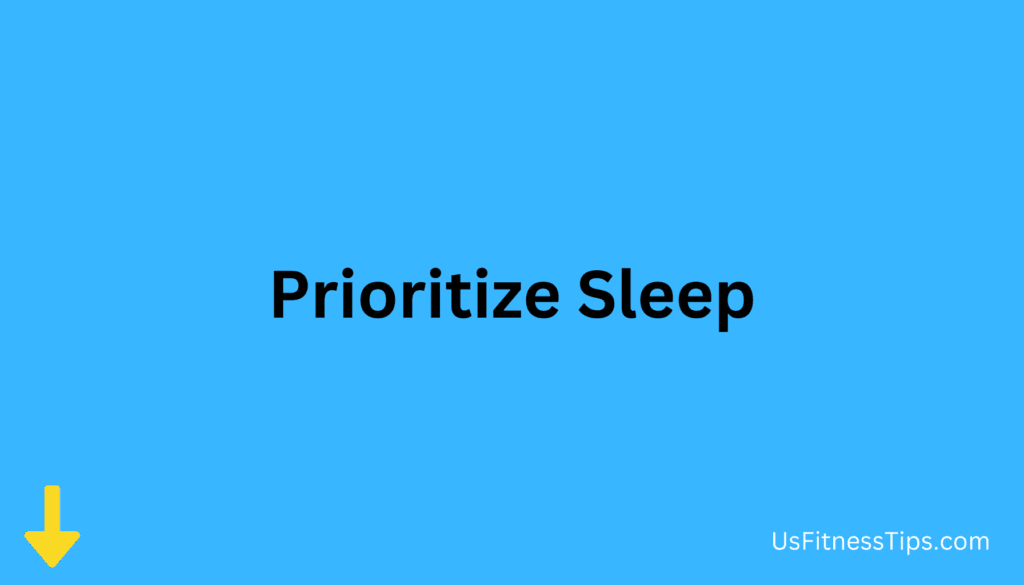
Getting enough quality sleep is one of the most effective ways to curb sugar cravings. When we’re sleep-deprived, our body produces more of the hunger hormone ghrelin and less of the hormone leptin, which helps us feel full.
This hormonal imbalance leads to cravings, particularly for quick-energy foods like sugar. According to research, people who are sleep-deprived eat more calories, often from sugary foods. Aim for 7-8 hours of sleep to keep sugar cravings in check.
- Adequate sleep plays a crucial role in balancing hunger hormones such as ghrelin and leptin.
- Poor sleep increases cravings for quick-energy foods like sugar.
- Try to establish a routine for getting 7-8 hours of sleep each night.
Find Sweet Alternatives

If you have a sweet tooth, you don’t have to cut out all sweets. Instead, try natural, whole-food options that don’t spike blood sugar as much as refined sugar does.
Berries, apples, and even a bit of dark chocolate can satisfy sweet cravings with less impact on blood sugar.
Research shows that eating fruit is linked to lower overall sugar intake, as the fiber in fruit helps slow down sugar absorption and reduce cravings.
- Try swapping processed sweets for natural ones like berries or apples.
- Dark chocolate in moderation can satisfy without triggering cravings.
- Fruits come with fiber, which can help reduce the desire for more sugar.
Practice Mindful Eating
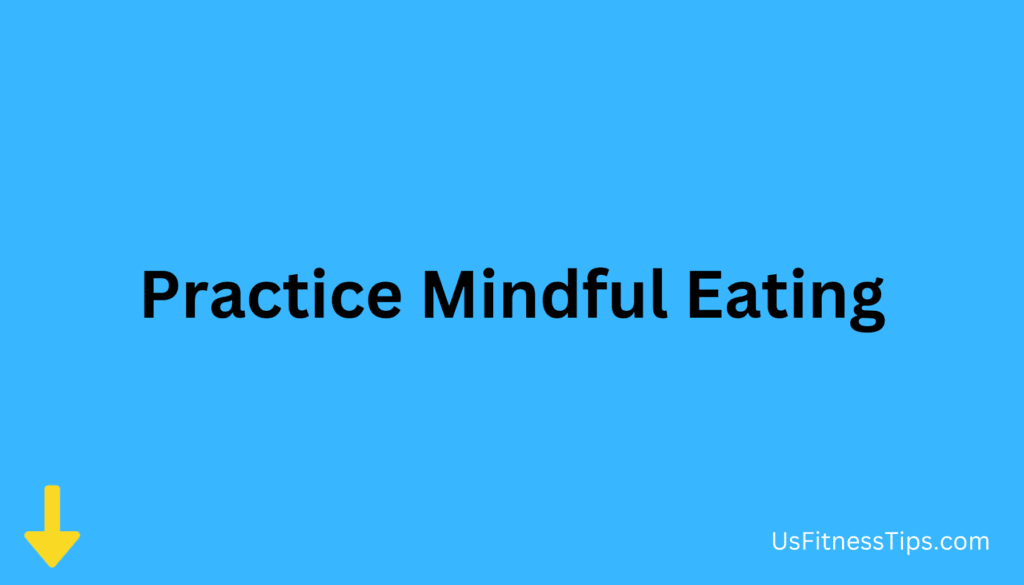
Sugar cravings can sometimes be more about emotions than hunger. Practicing mindful eating paying attention to what you’re eating and savoring each bite can help you avoid mindless snacking.
Studies suggest that mindfulness reduces emotional eating by helping you recognize real hunger cues. Slow down, savor your food, and notice how you feel before, during, and after eating. This can make you more aware of when you’re eating out of habit rather than hunger.
- Mindful eating can help you recognize if cravings are emotional.
- Slow down to fully enjoy each bite, which can reduce cravings.
- Awareness of hunger cues can help you avoid mindless snacking.
Exercise Regularly

Exercise releases endorphins, which help reduce stress and improve mood, both of which can reduce sugar cravings. Research has shown that moderate exercise can reduce appetite and cravings for sweets, especially when exercise becomes a regular habit.
A brief 15-minute walk can have a significant impact. Find a type of exercise you enjoy whether it’s dancing, cycling, or yoga and make it a regular part of your routine.
- Regular exercise lowers stress, which reduces sugar cravings.
- Aim for at least 15 minutes of activity to help curb cravings.
- Find an exercise you enjoy, so it becomes a sustainable habit.
Plan Healthy Snacks

When hunger hits and you’re unprepared, it’s easy to reach for sugary snacks. Having healthy options on hand like nuts, hard-boiled eggs, or yogurt makes it easier to avoid high-sugar options.
Studies show that people are more likely to make healthy choices when they plan ahead, so consider prepping snacks at the beginning of the week.
Having healthy options within reach can help you avoid sugar cravings by keeping your blood sugar stable.
- Plan snacks like nuts, eggs, or yogurt to avoid sugary choices.
- Prepare snacks in advance to simplify healthy eating.
- Balanced snacks keep blood sugar stable and reduce cravings.
Try a Sugar Detox or Challenge

A short-term sugar detox can help reset your taste buds and reduce dependency on sugar. Studies indicate that reducing sugar intake over just a few days can lower cravings and change taste preferences.
Try going a week or two without added sugars to give your body a break and help reset your cravings. Many people report feeling more energetic and noticing that they crave sugar less after a short break.
- Consider a one- to two-week sugar detox to reset your taste buds.
- Studies show that a short break from sugar can reduce cravings.
- A detox can increase energy and improve taste for natural foods.
Consider Supplements (If Needed)

Some nutrients, like magnesium and chromium, play a role in blood sugar regulation and may help with sugar cravings. Magnesium helps control blood sugar levels, while chromium can improve how your body uses insulin.
Studies suggest that people with low levels of these minerals may experience stronger cravings. If you think you might be deficient, consult with a healthcare professional to see if a supplement could be beneficial.
- Magnesium and chromium help regulate blood sugar.
- Low levels of these nutrients may worsen sugar cravings.
- Consider consulting a healthcare provider before taking supplements.
Spot Emotional Triggers
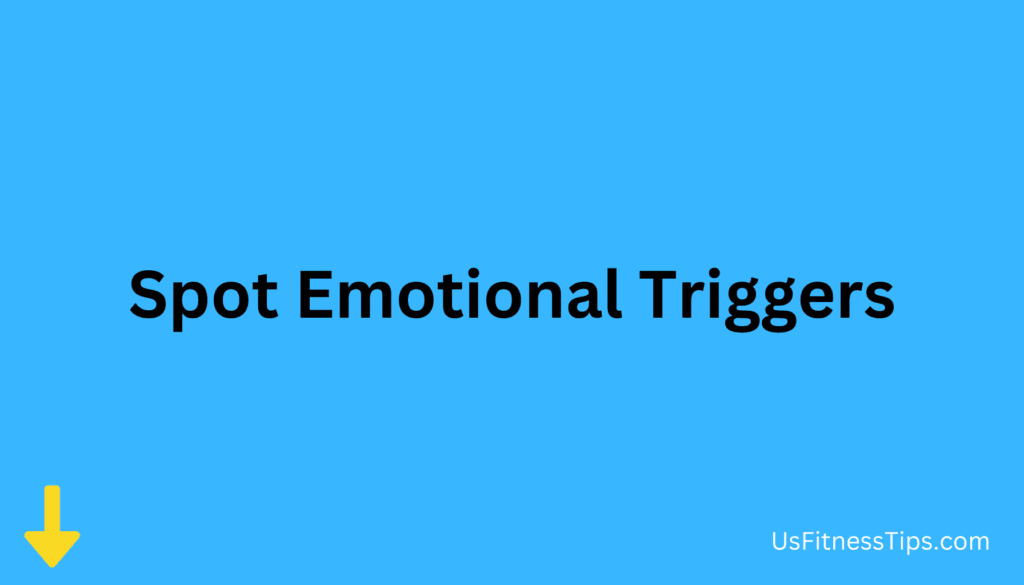
It’s common to crave sugar when you’re stressed, bored, or even celebrating. Identifying the emotions that trigger your sugar cravings can help you address the root cause.
If you find that stress is a big factor, try replacing sugary snacks with other coping strategies, like journaling, deep breathing, or talking with a friend. Studies show that identifying emotional triggers and using alternative strategies can reduce emotional eating.
- Recognize emotional eating patterns to reduce cravings.
- Practice healthier coping mechanisms, like journaling or deep breathing.
- Spotting emotional triggers helps address cravings at their root.
Manage Your Stress Levels

Stress elevates cortisol levels, a hormone that can trigger sugar cravings. High cortisol levels encourage the body to look for quick sources of energy, which often leads to cravings for high-sugar foods.
Reducing stress through activities like meditation, yoga, or even a warm bath can lower cortisol levels and help reduce cravings.
- Stress relief methods can reduce cortisol, decreasing cravings.
- Consider managing stress through meditation, yoga, or deep breathing exercises.
- Lowering cortisol helps prevent sugar cravings linked to stress.
Keep Your Blood Sugar Levels Steady
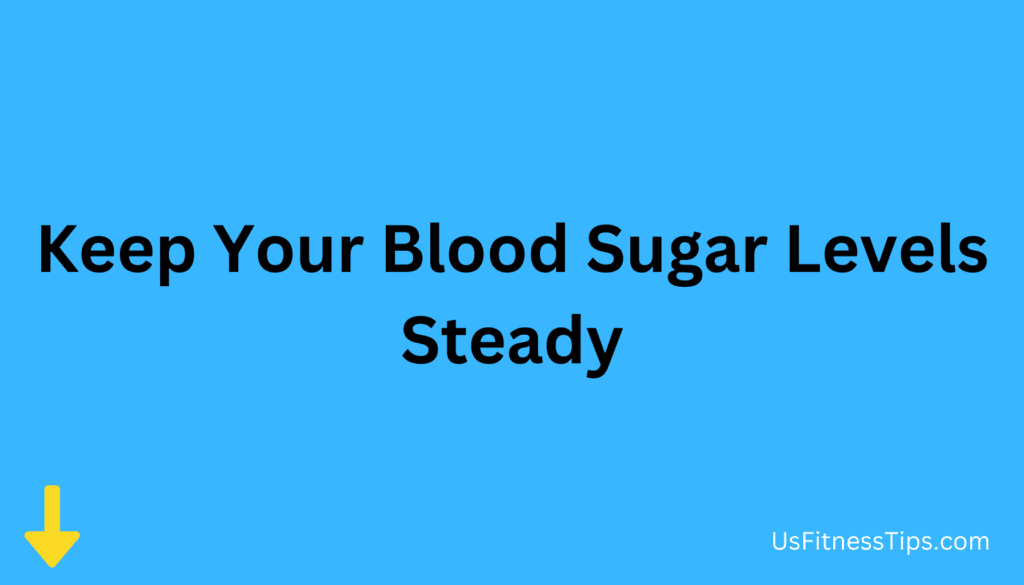
Eating regular meals can help prevent dips in blood sugar that often lead to cravings. Research shows that keeping blood sugar steady by eating every 3-4 hours helps reduce the need for sugary snacks.
Aim to eat balanced meals and small snacks to avoid the sharp drops in energy that trigger sugar cravings.
- Eating regular meals helps prevent blood sugar drops.
- Schedule meals every 3-4 hours to keep your energy levels steady.
- Small, balanced snacks can reduce the need for sugar fixes.
Watch Out for Artificial Sweeteners

Artificial sweeteners may seem like a good alternative, but they can actually increase cravings for sweets by keeping your taste buds used to intense sweetness.
Studies have found that artificial sweeteners can lead to increased cravings for real sugar. Gradually cutting back on both real and artificial sweeteners can help you adjust to less sweetness over time.
- Artificial sweeteners may keep your taste buds hooked on sweetness.
- Gradually reduce artificial and real sweeteners to reset your taste.
- Cutting back helps curb cravings for high-sugar foods.
Distract Yourself
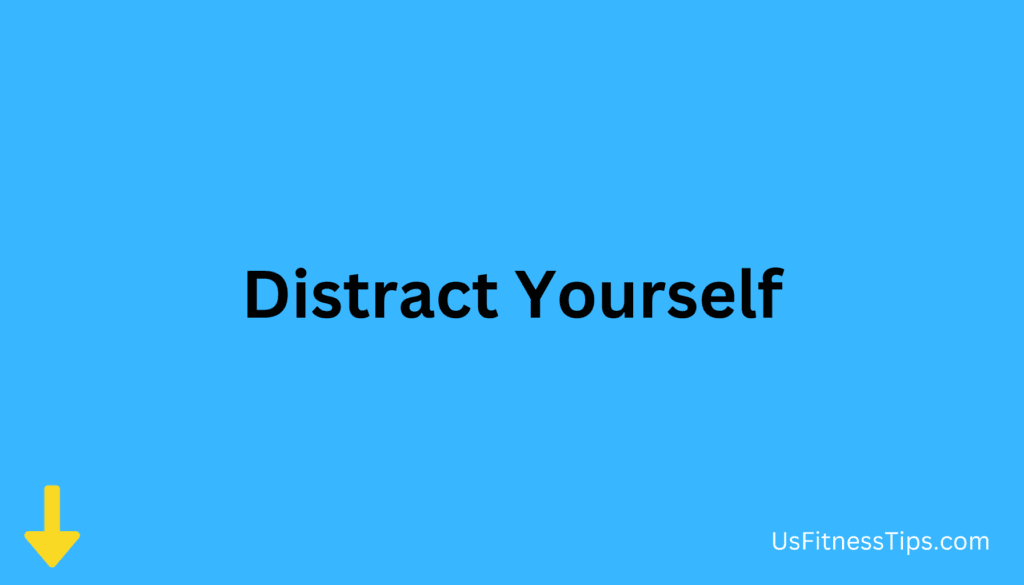
When sugar cravings hit, they usually last only about 10-20 minutes. Find a distraction take a walk, work on a hobby, or call a friend. Research suggests that cravings often fade when we focus our attention elsewhere. By the time you’re done, the craving may have passed.
- Most cravings fade within 10-20 minutes if ignored.
- Distract yourself by walking, chatting, or engaging in a hobby.
- Giving yourself time can help reduce the intensity of cravings.
Eat More Fiber

Fiber-rich foods keep you full longer by slowing digestion and balancing blood sugar. Whole grains, vegetables, and legumes are all great sources of fiber. Studies have shown that eating more fiber can help reduce cravings by promoting satiety and stabilizing blood sugar.
- High-fiber foods keep you fuller longer, reducing cravings.
- Try whole grains, vegetables, and legumes for fiber.
- Fiber helps maintain stable blood sugar levels.
Practice Moderation, Not Deprivation
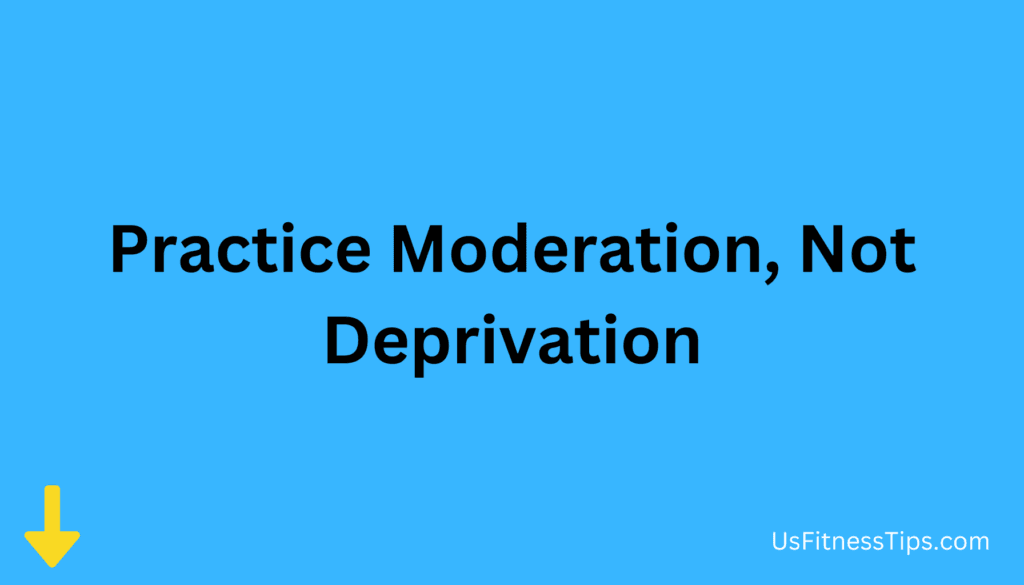
Cutting out sugar completely can make cravings worse for some people. Instead, practice moderation allow yourself a small portion of something sweet when you really want it. Research suggests that allowing occasional indulgences reduces the risk of binge eating and helps maintain a balanced relationship with food.
- Allow yourself small treats occasionally to prevent deprivation.
- Studies show moderation helps prevent binge eating.
- Balancing treats with healthy choices helps maintain control.
Boost Your Gut Health

Your gut health can influence your cravings. An imbalance in gut bacteria may cause you to crave sugary foods more often. Foods like yogurt, kefir, and other fermented items can help improve gut health. Research has shown that a balanced microbiome can help reduce sugar cravings.
- Gut bacteria influence your craving patterns.
- Foods such as yogurt and kefir, which are fermented, promote gut health.
- A balanced microbiome may reduce sugar cravings naturally.
Get Support

Sometimes, having accountability or someone to talk to can make a big difference. Joining a group, having a friend, or even setting goals with family members can help you stay on track. Studies indicate that social support is effective in helping people maintain healthy changes.
- Social support increases success in cutting sugar cravings.
- Find an accountability buddy or support group for encouragement.
- Set goals with a friend or family member for added support.
Reward Yourself with Non-Food Treats
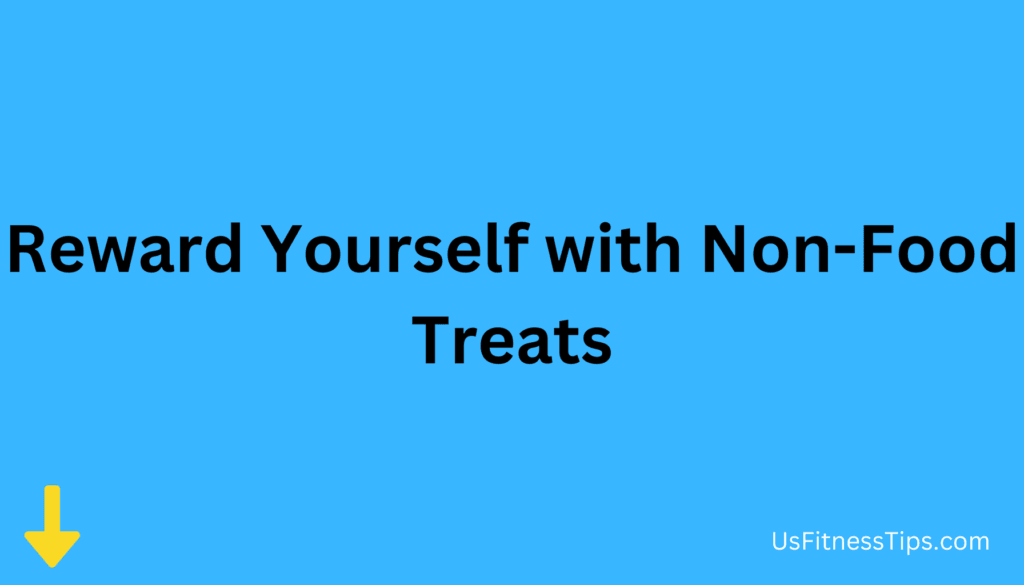
Replacing sugary rewards with non-food treats can help reduce dependency on sugar for pleasure. Instead of reaching for a treat, consider buying yourself something you enjoy, like a book, a new piece of clothing, or a relaxing experience. Studies show that non-food rewards can provide the same emotional boost without triggering sugar cravings.
- Reward yourself with non-food items to break the sugar reward cycle.
- Choose items that make you happy, like books, clothes, or activities.
- Non-food rewards help reduce dependency on sugar for satisfaction.
credit:Clean & Delicious




